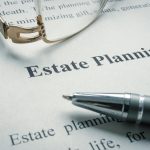Understanding these responsibilities is crucial for a successful rental experience, and you may be penalised if you fail to follow them.
Over a third of landlords (35%) bought their first property to initially live in themselves, so they may not be aware of all the regulations they must follow as landlords. This article explores the key responsibilities that every landlord in the UK must adhere to.
Health and Safety Hazards
As a responsible landlord, it is absolutely necessary to maintain your rental property in a safe and habitable condition for your tenants. Regular property inspections can help identify potential safety and health hazards.
These issues can include structural defects, dampness, or mould growth. Addressing these issues is essential to preventing potential legal disputes and keeping your tenants safe.
To ensure the safety of your tenants, follow these recommendations:
- Regularly inspect the property for any signs of structural damage, housing disrepairs or hazards that may pose a risk to tenants' safety.
- Address any issues related to gas, electrical, and plumbing systems by hiring qualified professionals as soon as you hear of an issue.
- Provide guidance to tenants on basic safety measures, such as using electrical appliances correctly and keeping emergency exits clear.
- Consider installing safety features like secure locks, well-maintained stair railings, and adequate lighting in common areas.
Gas and Electrical Safety
To maintain a safe living environment, you must ensure that all gas and electrical equipment in the property is safely installed and regularly maintained. Gas appliances, boiler servicing and installations should be checked annually by a Gas Safe registered engineer.
Electrical installations and appliances should also be inspected regularly by a qualified electrician. Keeping records of these checks is essential to demonstrate compliance with safety regulations.
Energy Performance Certificate (EPC)
When renting out a property, you must provide your tenants with an Energy Performance Certificate (EPC). This certificate rates the energy efficiency of the property and provides recommendations for potential improvements.
Prospective tenants should have access to the EPC before signing the tenancy agreement. This is in part because it impacts their bills.
Deposit Protection
As a landlord, you are required to protect your tenant's deposit in a government-approved tenancy deposit protection scheme. This scheme ensures that the deposit is securely held throughout the tenancy and returned fairly at the end, barring any damages or rent arrears.
The tenant must provide information about the scheme within 30 days of receiving the deposit. You could even consider writing it up and sending it by email so you have digital proof of having sent it.
Right to Rent Checks
If your rental property is located in England, you are responsible for conducting Right to Rent checks. This means verifying that all adult tenants aged 18 and above have the legal right to rent property in the UK.
Failing to conduct these checks or renting to someone without the right to rent could result in severe penalties. You may want to consider outsourcing this to a private company or agency.
How to Rent Checklist
Upon the start of the tenancy, you must provide your tenant with the "How to Rent" checklist. This document, which can be emailed to the tenant, outlines their rights and responsibilities as well as important information about the tenancy.
It is essential to keep your tenant informed to ensure a good landlord-tenant relationship. It also makes their lives easier. If they have any questions, they can easily refer to the checklist.
Fire Safety
Ensuring fire safety in your rental property is your responsibility. This includes fitting and testing smoke alarms and carbon monoxide alarms where required by law.
Landlords of properties in purpose-built blocks of flats or houses adapted into flats must comply with specific fire safety regulations to minimise the risk of fire-related incidents. Check with your agency what these requirements are, or search on your local council’s web portal.
Housing Health and Safety Rating System (HHSRS)
Local councils use the Housing Health and Safety Rating System (HHSRS) to assess the safety of properties within their area. An HHSRS inspection may be conducted if tenants request it or if the council identifies potential hazards in the property.
Inspectors examine various health and safety areas, categorising hazards as category 1 or 2 based on severity. As a landlord, you must address enforcement notices issued by the council and take appropriate action to rectify any identified hazards.
Financial Responsibilities
Apart from ensuring the safety and well-being of your tenants, you also have financial responsibilities as a landlord. This includes paying Income Tax on your rental income after deducting day-to-day running expenses.
If your rental activities are deemed as running a business, you may be required to pay Class 2 National Insurance as well. If you occasionally rent out your property or part of your home, you should check whether you need to inform HM Revenue and Customs (HMRC) about this income. If you have a mortgage on the property, you must seek permission from your mortgage lender before renting it out.
Regulated Tenancies
For regulated tenancies, typically private tenancies that began before 15 January 1989, special rules apply to changing rents and terms. If your property falls under this category, you should familiarise yourself with these specific regulations.











